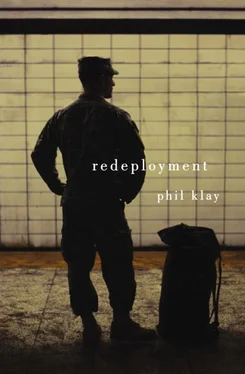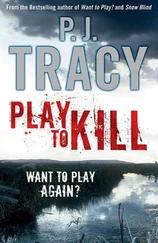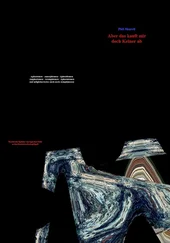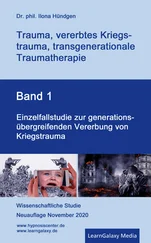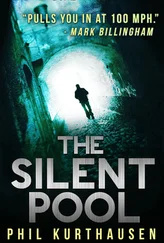“And?” said Zara.
“And I thought I saw him twitch,” I said. “I jumped back and that sent all the Marines into alert, the corporal screaming at me to tell them what I saw. When I told them the corpse twitched, they didn’t believe me. The little Marine got back on the optic, saying, ‘He’s not moving, he’s not moving,’ repeating it over and over, and the lanky one asked if they had to go out and treat the hajji’s wounds. But the corporal said the corpse was probably just settling. Gas escaping or something.” I looked down at my hands. “The little Marine was angry now, they all were, and at me.”
“Was he alive?” Zara asked.
“The corpse?” I said. “If he was, it wasn’t for long. The little Marine put me back on the optic and it did look darker. That’s what I told them. And the corporal told the little Marine he did good, while I stared into the scope and tried to see the life going out of him. Or the heat, I guess. It happens so slow. Sometimes I’d ask the little Marine if he wanted to look, but he never did. He was an unusual sort of Marine. The adrenaline was fading and he was just left with this thing he’d done, and he didn’t want to watch.”
We took in the late afternoon for a moment.
“So that’s yours now,” she said.
“What do you mean?”
“You watched him die.”
“Just the heat signature,” I said.
“That’s yours now,” she repeated. “You took it from him so he wouldn’t have to watch.”
I didn’t say anything. Neither of us had used the hookah in a while, so I grabbed the hose and started pulling smoke into my lungs.
“And now you’re telling me,” she said.
I blew out smoke.
“Why are you telling me this?” she said.
“You asked me how I could kill my people,” I said.
“And what?”
I put down the hose and she picked it up. I didn’t have a real answer for her, and now that I’d told the story, I didn’t feel I’d actually told her anything at all. I think she knew it, too, that the story hadn’t been enough, that something was missing and neither of us knew how to find it.
“Who do you think he was?” she said.
“What do you mean?”
“The guy that Marine shot,” she said.
I shrugged. “Some kid,” I said. “A stupid death. That’s what we were out there to prevent.”
She let out smoke in a slow, sensual way, but her face looked concerned. Upset. “What do you mean, ‘prevent’?”
“I was PsyOps,” I said. “Psychological Operations. I was supposed to tell the Iraqis how to not get themselves killed. And I actually spoke the language, so it was me on those loudspeakers, not a translator.”
“Right,” she said. “You spoke Arabic growing up.”
I shook my head. “Egyptian Arabic,” I said. “The soaps and the movies mean a lot of non-Egyptians understand it, but still, it’s different.”
She nodded. “I knew that.”
“The Army didn’t,” I said. “My unit thought they’d hit the jackpot. They didn’t even have to send me to language school. I tried to argue that they should, but then Sergeant Cortez came back from Monterrey speaking Modern Standard Arabic and I realized that U.S. Army mental retardation was a general problem.”
“So what, you learned Iraqi on your own?”
“Yeah, I got books from an office friend of my father’s,” I said. “And I’d go out and tell the Iraqis what was what. These imams were up there getting everybody excited, telling them to fight us. And the teenagers ate that shit up. You’d have a bunch of kids with no military training who’d seen too many American action movies try to go Rambo. It was crazy. An untrained kid against a Marine squad in camouflaged positions with marked fields of fire?”
“But of course that’s gonna happen,” she said, “when you send an army through a city.”
“We tried to limit the damage. The generals had a bunch of meetings with the imams and sheikhs to tell them, ‘Stop sending your stupid fucking kids against us, we’re just going to kill them.’ But it wouldn’t change anything.”
“In their eyes the problem wasn’t the kids,” she said.
“Things were crazy then. And we were fucking that city up.”
“I’ve read there were hundreds, maybe thousands of civilians killed.”
“There was propaganda on both sides. But I was trying to help people avoid getting killed. And not everybody was kids.”
“But a good number were.”
“Some,” I said. “That one I saw fade, it was a small body. Hard to tell. But I always think, That was one I was supposed to save.”
“Save?” she said. “By convincing him not to fight the soldiers invading his home?”
I laughed. “Yeah,” I said. “It was such bullshit. The Marines would be sitting there waiting, hoping some dumb muj would make a suicide assault. Nobody wants to be the guy in the squad who hasn’t killed anybody, and nobody joins the Marine Corps to avoid pulling triggers.”
She nodded.
“That’s not why I joined the Army,” I said.
“So why did you?”
I laughed. “‘Be All That You Can Be’?” I said. “I don’t know. That was the slogan for me, growing up. And then it was ‘Army of One,’ which I never understood, and then it was ‘Army Strong,’ which is about as good a slogan as ‘Fire Hot’ or ‘Snickers Tasty’ or ‘Herpes Bad.’ A better slogan would be, ‘You Can’t Afford College Without Us.’”
She seemed to be sizing me up, deciding how to take what I’d told her. I sat and smoked and didn’t say anything. Eventually she leaned back into her chair and gave me the sort of straight look she’d use in class before tearing someone apart.
“So that’s your story,” she said. “The story you wanted to tell me. Now what?”
I shrugged.
“Do you tell this story to other girls?”
“I’m being honest,” I said. “I’m not honest with other girls. It hurts my chances.”
She shook her head. “You say you joined for college? I don’t believe you.” Then, imitating my voice, “Nobody joins the Army to avoid pulling triggers.”
“You got no idea why anybody joins the military,” I said, the words coming out angrier than I wanted. “No fucking clue.”
She smiled and leaned in, enjoying my anger. It was her, the old Zara.
“I know what you think,” I said. “I know your type.”
“My type?” she said. “You mean Muslims?”
“Why’s it always Muslims with you?”
“I know you don’t like us.”
“That’s not true.”
She shook her head. “We say things for a reason,” she said.
I sighed. “I’ve been hated as a Muslim. The last time my father hit me was after a kid at school called me a ‘sand nigger.’”
“What?” Zara said. “Your father hit you ?”
“It’s how I handled it. The fight…” I stopped for a moment, tried to figure how I’d explain it to her. “Look, I went to a nice high school in northern Virginia, in a town too expensive for us to live in. My father moved us there when I finished junior high. He wanted me to have the best education. Which was great, I guess, though I really didn’t fit in.
“The fight turned out to be a big deal because a teacher overheard the kid using that word. The n-word. This was after 9/11, and it wasn’t that kind of town, you know? They didn’t see themselves that way. It became a big incident, and there was a lot of sympathy for me, because I was Arab, and because of 9/11, and because of what he said. I hated all of it. I don’t like pity.”
“What did you do to the kid?”
“Yelled back a few names.”
“That’s not really enough, is it?”
“My dad didn’t think so. It’s why he hit me. Because I hadn’t fought the kid who was insulting me and, by implication, our whole family. Or maybe he was just pissed the school principal seemed to think we were Muslim, too.”
Читать дальше
